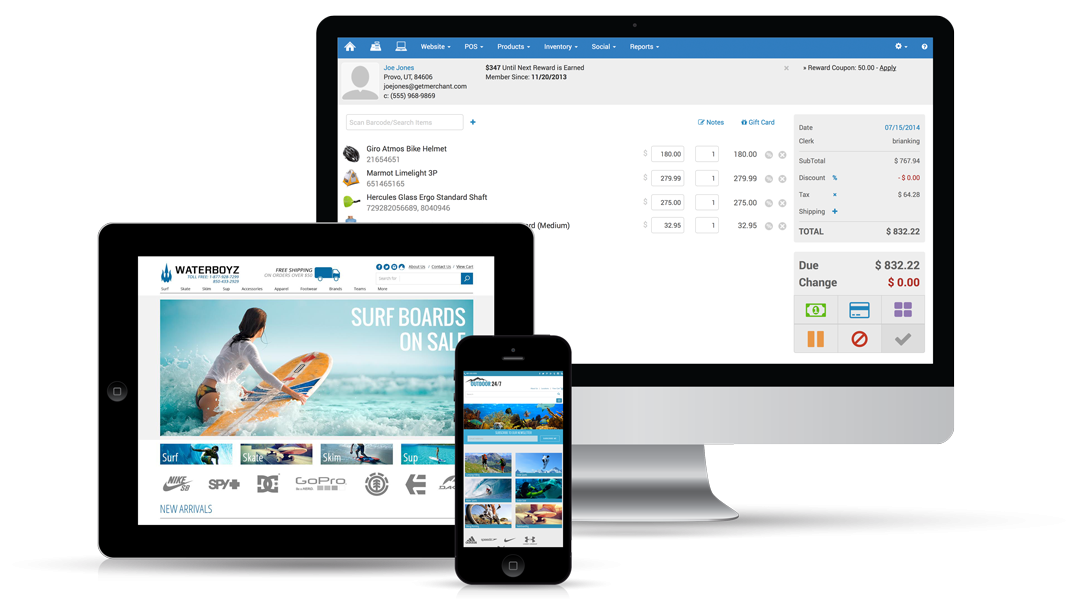By Eric Thornton.
For many small business retailers, managing a point-of-sale (POS) system comes with the territory of owning a store. With these systems, owners are able to manage things like inventory, scheduling, and more. But, every year, these businesses must also prove that they’ve kept track of sales and are correctly reporting their earnings. Enter the small business accountant.
Earlier this year, Intuit announced that its sunsetting it’s QuickBooks POS software and that support would be discontinued with the reasoning that it requires significant maintenance and is hard to keep up with new features. For countless businesses, this change has sent shockwaves through their operations. However, it provides an opportunity for business owners – and their accountants – to leverage new solutions that are both business and accounting-friendly.
How can accountants help their clients get ahead of messy data collection and unruly tax preparation? Let’s dig in.
Give guidance to clients and make their POS system work for them
POS systems tailored to specific business needs – for example, a POS system that supports retailers that only focus on pets and pet supplies – can provide both operations support, as well as increased visibility into the company’s sales.
It’s common practice for retailers to have their POS systems linked into their accounting systems, where they track information related to business finances including deposits, withdrawals, sales, and more. However, when preparing for tax season, and equipping accountants with as much information as possible, a basic POS that outlines inventory and business activity in broad categories won’t make the cut. Luckily, POS systems have gotten more sophisticated, making tax time easier than ever before.
Let’s go back to our example of a pet store. With an industry-specific POS, retailers can break up their retail goods and store activities into things like “pet food – dry” vs “pet food – wet” instead of just “pet food.” The same goes for an activity within the store. “Dog training” vs “dog grooming services” is much more specific than listing the action as an in-store activity. Benefits of this specificity include:
- Visibility: Helping business owners and their accountants see where buyers are spending on products and services is helpful. If 75% of dog food sales are for dry food, businesses can adjust their spend with the appropriate suppliers to ensure they don’t have a large back-stock of product that isn’t selling. For accountants, understanding the differences between what has been purchased and what has been sold can help them provide guidance to their clients and ensure that revenue is adequately accounted for when preparing tax documents.
- Accounting for service versus product revenue: Services are also something that accountants can review and ensure they are providing appropriate recommendations to the business owner. If training and grooming are the two services offered and training accounts for 90% of the services income, it may be worth eliminating grooming services since it may cost more to keep the service open than it is generating. As a business owner, this information matters because it also ties into the number of employees working at the shop and informs how much the company is paying in employer-sponsored taxes.
Ensure the POS system is able to integrate with accounting systems
It’s imperative that a POS is able to tie into a business’ accounting system of choice to mitigate issues when collecting data between the two platforms.
For accountants, disparate data creates additional headaches and obstacles when working to collect information. By integrating POS and accounting systems, data from the POS (sales, inventory, labor, etc.) is accurately posted into the accounting system, which then gives both business owners and their accountants clarity into the financial state of the business.
When these systems aren’t integrated, companies run the risk of data being documented in multiple places and accountants not being able to distinguish between different records. Furthermore, it also takes away from the time that business owners should be spending with customers – since they are often busy handling spreadsheets and manual entry – while also adding to the time that accountants need to spend understanding the finances to ensure proper tax preparation.
Help streamline back-office tasks to build customer satisfaction and loyalty
The termination of QuickBooks POS support has emphasized the importance of POS and accounting integration and synergy. Accountants should advise their small business owner clients to implement platforms that not only help with payments and inventory, but that go above and beyond to ensure that financials are made as easy as possible come tax time.
By investing in vertical-specific POS systems that both support specialty operations and integrate well with accounting software tools, business owners can streamline their internal operations and improve customer experiences, ultimately enhancing overall efficiency and building customer loyalty. At the end of the day, sales are imperative for business success and keeping track of sales to correctly report earnings is all part of the business lifecycle.
—-
Eric Thornton is VP of product at Rain Retail Software.
Thanks for reading CPA Practice Advisor!
Subscribe Already registered? Log In
Need more information? Read the FAQs
Tags: Small Business




